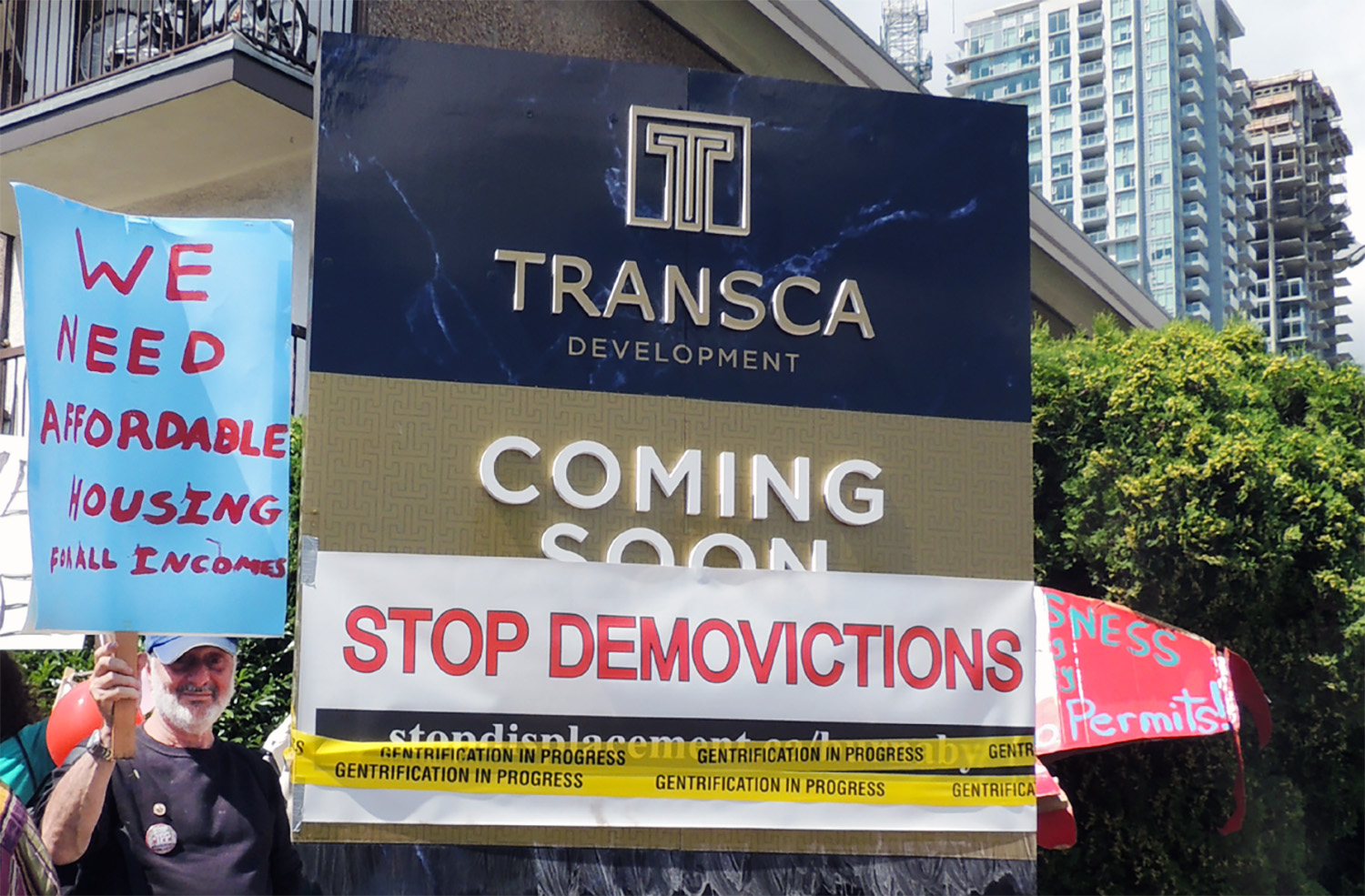By Kimball Cariou
A series of escalating and inter-related crises in Vancouver this summer has pushed the need for serious reforms back to the top of the public agenda, just as British Columbians gear up for municipal elections on October 15 and possibly a provincial campaign by the spring of 2023. On August 9, police attacked and arrested people while removing an informal tent city stretching for several blocks from Main and Hastings, in the heart of the Downtown Eastside (DTES).
Those arrested included observers from long-established community groups like the PIVOT Legal Society and Vancouver Area Network of Drug Users (VANDU). The actions of the VPD violated previous official promises to avoid such brutality. Police claims that they were simply responding to violent assaults were rejected by witnesses.
The latest events come during another stifling hot summer; not as bad as 2021, when over 600 people died during the “heat dome”, but enough to remind everyone that climate change is already a reality, not a prediction.
Vancouver is celebrated as one of the best cities to live on the planet, a description which applies mostly to those in upper-income brackets who benefit from relatively low tax rates and the unearned gains from decades of skyrocketing housing values. But daily life is an increasingly difficult struggle for renters paying at least $2000 for small apartments, getting by on minimum wage, let alone for many thousands of under-housed or homeless residents, existing on social assistance or disability rates that leave almost nothing for food, clothing or other basics.
As usual during a civic election year, several factors came together this summer. The dismantling of a large tent city of homeless people (largely of Indigenous backgrounds) in Strathcona Park last winter did include efforts to find places to live for many of the campers. But as in the past, but fires, demovictions, and rent increases caused a new expansion of homelessness.
The available supply of shelters and new social housing projects was swamped. Beginning in June, people seeking shelter and community began putting up an estimated 200 tents on Hastings. Not surprisingly, conditions in the area were soon desperate, and civic officials warned that the tents were blocking access to buildings, and that propane heaters posed a danger of fire.
Such warnings are issued whenever Vancouver politicians get nervous about voter backlash just before an election. Their “clean up the streets and parks” mantra is always amplified by right-wing forces eager to clamp down on poor people who are supposedly “bad for the tourism industry”.
Pro-business mayoralty candidate Ken Sim is raising ominous warnings about the need to hire more cops, for example. And on August 15, hate leaflets appeared in the DTES, threatening vigilante violence against homeless people. Meanwhile, the push to remove the existing tents continues, even though the promise of suitable housing options has been ignored by city officials. The stage is set for an even more serious scenario, particularly with daily temperatures forecast to spike into the 30s.
The drumbeat of calls by media and politicians for increased policing comes three years after huge anti-racism demonstrations in Vancouver demanded defunding of the police and a shift towards treating drug use as a health issue. That successful campaign did compel City Council to pass a budget with a zero increase in police funding, but this decision was arbitarily overturned by an appointed provincial bureaucrat who ordered the city to restore five million dollars in higher spending.
Meanwhile, other aspects of the health care crisis overwhelming the province have become even more alarming. Figures released by the BC Coroners Service show that since BV’s toxic drug crisis was declared in 2016, over 10,000 people have died from overdoses, including 1095 in the first six months of 2022. Despite limited attempts to establish a universal safe-drug supply, and better treatment and housing options for users, the situation remains dire. On a larger scale, one-fifth of the province’s five million people don’t even have a family doctor, and access to health care is increasingly difficult.
Of course, other west coast cities face a similar crisis of housing, mass poverty, police violence and overdose deaths. On one night just a few weeks ago, several homeless people were murdered in Langley, just an hour west of Vancouver.
Premier John Horgan has stepped down for health reasons, and his replacement will almost certainly be David Eby, the former social justice activist who has been a key NDP cabinet minister since 2017, when his party celebrated the long-desired defeat of the Gordon Campbell/Christy Clark Liberals.
After five years inside a government tinkering with aspects of the problems overwhelming British Columbia, Eby will be under intense pressure to take real action. His leadership bid is being challenged by Anjali Appadurai, a candidate with grassroots experience and sharp radical rhetoric. But the NDP’s track record does not inspire optimism that things will improve, even if some left activists join the party to cast a protest vote. Real change will mean rejecting the concept of building an economy that relies on resource extraction and higher property values, and building a massive and powerful popular coalition, rooted in the working class and Indigenous peoples of British Columbia.
Get People’s Voice delivered to your door or inbox!
If you found this article useful, please consider subscribing to People’s Voice.
We are 100% reader-supported, with no corporate or government funding.




